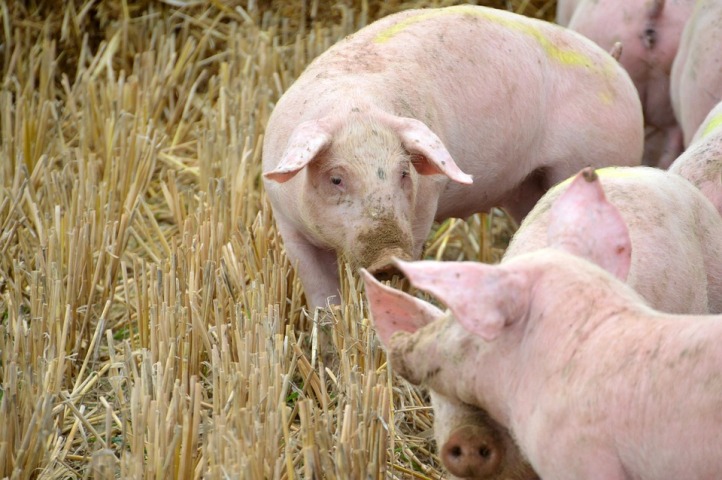China lays new set of rules to keep pork prices low for customers

- Country:
- China
China's pork prices are being kept in check even as pig production continues to drop, with tough new rules on slaughterhouses crimping trade and pushing frozen pork stocks onto the market, according to analysts. Hog prices in the world's top producer rose sharply in early March as losses from an epidemic of incurable African swine fever started to impact supplies.
The prices levelled off in mid-March, however, and in many areas have declined in May, confounding anticipation of a rapid rise in pork prices after widespread culling. That's because Beijing has rolled out new rules requiring slaughterhouses and processing plants to test for the African swine fever virus, slowing down the business at many facilities and denting demand.
"The government is checking slaughterhouses, cold storage warehouses and processing firms so nobody dares to buy pigs, kill pigs or sell meat. Live hog demand is fairly poor," said Feng Yonghui, chief analyst with Soozhu.com. African swine fever does not harm people but to help curb the spread of the disease, the Ministry of Agriculture and Rural Affairs on March 15 ordered slaughterhouses to test each batch of hogs for the virus.
Larger facilities needed to install testing equipment by May 1, and all processors must comply by July 1. The ministry has said it will carry out inspections to check up on them. Some slaughterhouses have been selling off frozen pork ahead of inspections, said Pan Chenjun, the senior analyst at Rabobank. There is always the risk that pigs slaughtered previously may have had the virus. "Nobody can be very sure that their meat is 100% safe," Pan said.
A follow-up order from the agriculture ministry in early April, outlining requirements on traceability and inspections in processors has further dampened trade, Feng said. The overall impact on demand means pork prices are not rising much either, even though they are up sharply compared with last year's low levels.
FROZEN PORK
Many processors took advantage of low hog prices after African swine fever first hit in August of last year, storing the excess product in freezers. But frozen meat products can generally be stored only a maximum of one year, meaning producers need to start selling off their stock.
Some processors have also shifted to using more imported meat, Pan said, further pressuring domestic demand. She estimated China could have about 2 million tonnes of freezer capacity for pork. An official at a major frozen foods company told Reuters that the firm had reduced its use of local pork after one of its products was found in January to contain the virus.
"Even with the certificate, pork may still be infected with African swine fever. For safety reasons, we only buy imported pork now," the official said, declining to be named because of the sensitivity of the matter. China's top processor, WH Group-owned Henan Shuanghui Investment & Development Co Ltd, slaughtered 4.7 million pigs in the first quarter of 2019, about a fifth more compared to the same period last year, it said in April, taking advantage of low prices in January and February.
The additional supplies will help ease costs when live pig prices start to rise later this year, said the company. WH Group declined to comment on whether it had sold off some of these stocks ahead of the slaughterhouse rules. The company said in its first-quarter earnings statement that its "rigorous quality control" ensured the safety of its meat products.
China's sow herd fell 21% in March and piglet prices have surged to their highest in two years. Officials have warned of a shortfall in pork and surging prices in the second half of the year. Hog prices will likely start rising again from July when the government inspections are finished, the analysts said.
Shuanghui President Ma Xiangjie told analysts on April 29 that hog prices could go above 20 yuan per kg ($1.32 per pound) in the second half of the year, against a national average of 15 yuan per kg on May 1.
(With inputs from agencies.)
- READ MORE ON:
- China
- company
- African
- slaughterhouses
- producer
- WH Group
- Pan Chenjun
- Feng Yonghui
ALSO READ
Soccer-Six arrested for hijack killing of South African footballer
Renowned Malayalam movie producer Gandhimathi Balan passes away
India now world's fourth-largest producer of research, on brink of overtaking UK: QS officials.
Wanderers, Kingsmead, Newlands among eight South African venues for 2027 World Cup
Italy plans to invite South American, African countries to June G7 summit










